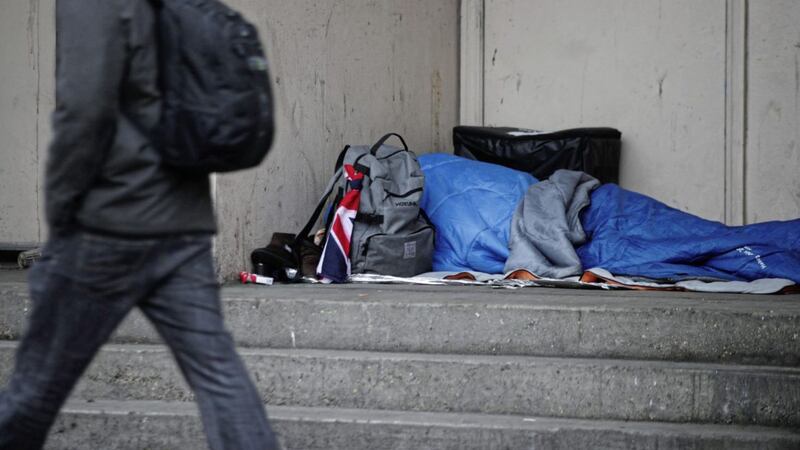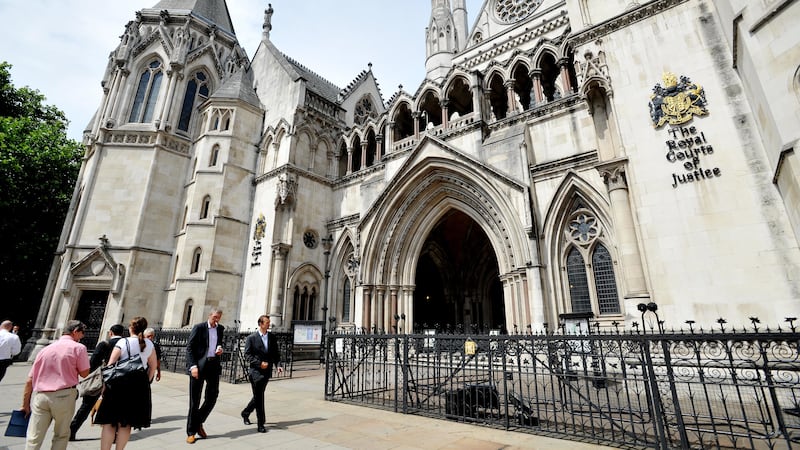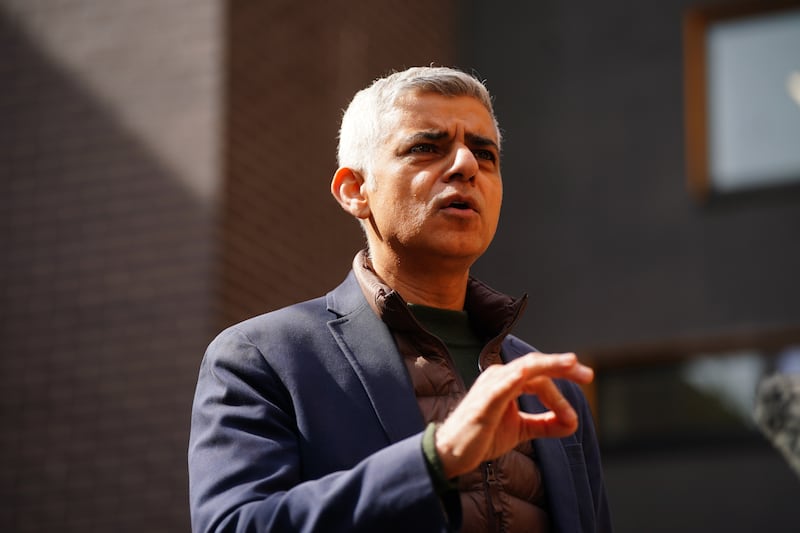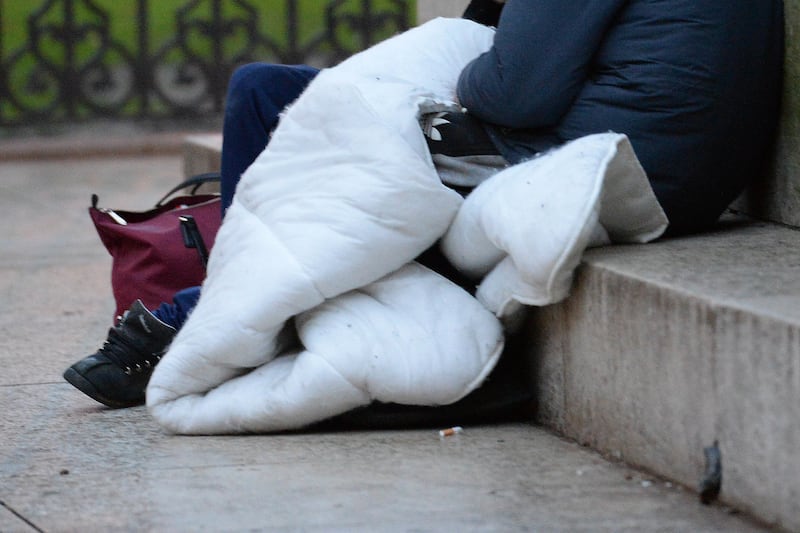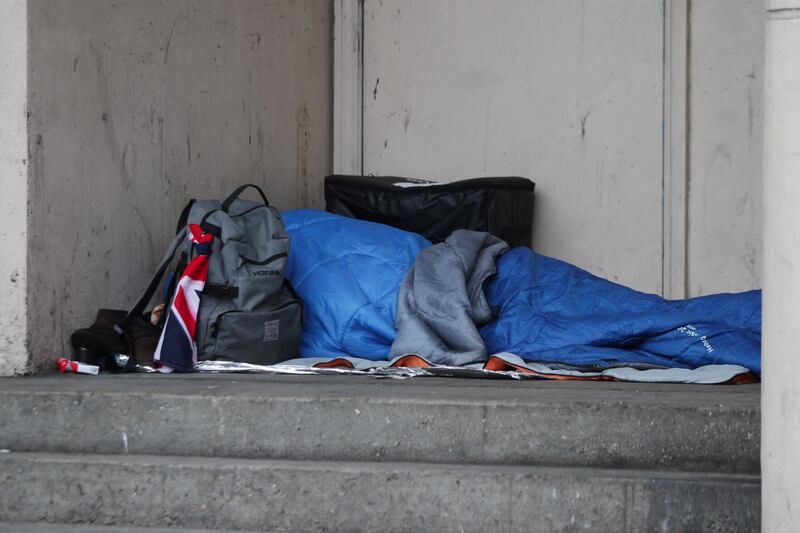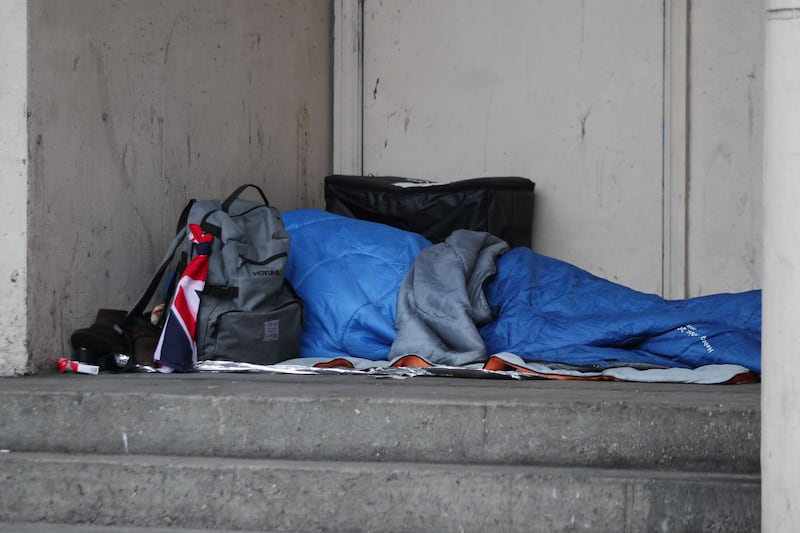The scale of homeless deaths in Britain has been branded a "national tragedy" after official estimates showed a rise of almost a quarter over five years.
Some 597 people sleeping rough or in emergency accommodation were estimated to have died last year in England and Wales, the Office for National Statistics (ONS) said.
This represents a 24 per cent leap from 482 in 2013, according to the department's first research of its kind.
Life expectancy for the homeless is nearly half that for people in stable housing, with homeless men and women dying on average at the age of 44.
It was estimated that last year more than one in 10 homeless deaths were due to suicide, while more than two-fifths was due to drug poisoning or alcohol-related.
Communities secretary James Brokenshire said the figures are "stark" and reiterated a Tory pledge to halve rough sleeping by 2022 and end it by 2027.
Labour deputy leader Tom Watson described the death toll's jump as "abhorrent".
Crisis chief executive Jon Sparkes said: "This is nothing short of a national tragedy – especially when we know that homelessness is not inevitable.
"In one of the world's wealthiest countries, no-one should be dying because of homelessness. It's imperative that governments act now to stop this tragedy once and for all."
Shelter campaign director Greg Beales branded the deaths "a source of national shame".
"There is nothing inevitable about homelessness or about these tragic deaths which are a consequence of a housing system which fails too many people," he added.
The charity blamed a "crippling shortage of social housing" as well as a "threadbare safety net", as it called on the government to change tack to end the scourge.
The Local Government Association said ending homelessness was becoming "increasingly difficult" with a funding gap, as it called for "proper resourcing".
The statistics came a day after MPs were told about the death of a homeless man, a 43-year-old known as Gyula Remes, who was found outside the Houses of Parliament.
He was the second homeless man known to have died near the Palace of Westminster this year.
Work on the latest ONS figures was prompted by research from the Bureau of Investigative Journalism in October, which found that at least 449 homeless people had died in the UK in the previous 12 months.
So what do you do when you see someone sleeping rough on the streets?
The initial answer is the same wherever you are. Specialists and volunteers say having a chat with a rough sleeper, if you feel comfortable doing so, can go a long way. Without being intrusive, it is advised that you might want to ask their name, who they are and what their situation is.
What is somewhat harder is working out what to do next – and this depends on the situation. Here are a few things to consider.
1. Does the person need emergency help? If the person in question is likely to be under 18 or is sleeping rough with a child in their care, this is a matter to refer to the police and social services immediately. If the person is in need of urgent medical attention calling 999 for an ambulance will get them professional help quickly.
2. Will the person be outside in sub-zero temperatures? The local authority and other outreach organisations will work to offer extra temporary accommodation where possible. Contact details for groups in your area can be found online.
3. How do I alert the local authority? People in Northern Ireland are advised to refer rough sleepers to the Northern Ireland Housing Executive as a first port of call. However, it is important to get the person's consent before doing this.
4. Should I give my own money? Many have different views and feelings about giving money to people they meet on the street, and there isn't any right answer to this issue. Some feel more comfortable donating to housing or homelessness charities – of which there are a number – to help tackle the issue. However, if you are unable to help in any other way, there's certainly no harm in offering someone a warm drink, some food or a blanket – or even just someone to talk to for a while.
